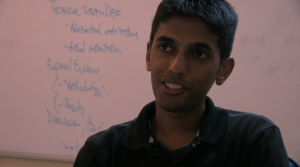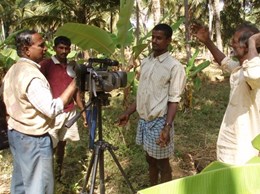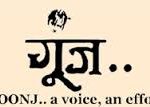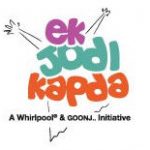Social Entrepreneurs turning small ideas into big
 Just as entrepreneurs change the face of business, social entrepreneurs act as the change agents for society, seizing opportunities others miss and improving systems by inventing new approaches, and creating solutions to change society for the better. While a business entrepreneur might create entirely new industry, a social entrepreneur comes up with new solutions to social problems and then implements them on a large scale. The new breed of social entrepreneurs are focused on their enterprise, they have workable solutions for dormant and rigid social problems.
Just as entrepreneurs change the face of business, social entrepreneurs act as the change agents for society, seizing opportunities others miss and improving systems by inventing new approaches, and creating solutions to change society for the better. While a business entrepreneur might create entirely new industry, a social entrepreneur comes up with new solutions to social problems and then implements them on a large scale. The new breed of social entrepreneurs are focused on their enterprise, they have workable solutions for dormant and rigid social problems.
Contemporary economists and management writers like Baptist Say, Joseph Schumpeter, Peter Drucker and Howard Stevenson have defined entrepreneurship with slight variance but the same perspective that entrepreneurs are individuals who create value, those who are innovators, those who are change agents in society etc. Social entrepreneurs are close to all these definitions created by various economists. The only difference being that of social entrepreneur is entrepreneurs with a ‘social mission’, for a social entrepreneur social mission if explicit and central theme. This affects how they perceive and assess opportunities. The criterion of the social entrepreneur definition is mission-related enterprise; not merely wealth creation. Social entrepreneurship has gathered a momentum because of large numbers of NGOs and organizations working for a social cause. The description of social entrepreneur can thus be put as follows:
- Social entrepreneurs play the role of change agents in the social sector by adopting a mission to create and sustain social values.
- They recognizing and relentlessly pursue new opportunities to serve a mission.
- They engage themselves in a process of continuous innovation, adoption and learning.
- Once they accept a mission, they act boldly without being limited by resources in hand.
- Thus they exhibit heightened accountability for a cause. They are fewer in numbers.
I give here below account of two young Indians who have turned small ideas into big production. We are living in a world which is constantly looking for solutions to small and big problems we face every day in our lives. And, let us accept this fact that public administrations cannot work alone and they are more and more looking for innovative solutions coming from civil society. People like Rikin and Anshu are a rare breed of youngsters who have guts to give up their comfortable, prospering careers and bring in some stunning solutions to some societal problems.
Let’s look at Rikin Gandhi’s Digital Green enterprise to understand while he works locally, his innovation has global applicability.
 RIKIN GANDHI – CEO of DIGITAL GREEN
RIKIN GANDHI – CEO of DIGITAL GREEN
Rikin’s story is awesome. He’s an aerospace engineer from the Massachusetts Institute of Technology and a licensed private pilot, who could make a coveted career in the US Air Force as he was chosen by them. It seems so many people who travelled to space, saw earth from up above and wondered why there was poverty and war on this beautiful planet. Many of them after coming back to earth went on to become public school teachers or farmers in the Midwest, this was their way of connecting with people. Stories like these inspired Rikin. He learned through a friend of his who was working on biodiesel project in Maharashtra, about pathetic conditions of farmers. So many of them commit suicides due to mounting debts which they cannot service; their dependability of monsoon and poor quality of infrastructure are unsolvable problems. Rikin decided to do something for the farmers.
Digital Green is Rikin’s brainchild. He decided to use his handy cam as a tool for social networking with the farmers. The method was simple: the farmers recorded their problems, solutions and success stories; this information is recorded and edited. Further, it is reached via videos to those who need the advice that too from the horse’s mouth – the notional truth from the practical source itself. This gave birth to Digital Green a social enterprise.
Microsoft Research has set up a lab in Bangalore to look at technologies for emerging countries in sectors such as microfinance, education, agriculture and study about how technology can be used to improve the lives of people. Digital Green was initially incubated in the Microsoft Research India lab.
 The idea of Digital Green is to use relevant videos to educate the farmers on scientific methods of farming which in turn will help them increase their yield resulting in prosperity. The videos are localized in terms of language and socio –economic background of the audience. Producing and distributing locally relevant videos involving the local community. The videos consists information on farming by farmers, of farmers, and for farmers. The company works with NGOs which play an important role in identifying “resource persons” from the community who can produce the videos and to have the subject-matter expertise for ensuring the quality of the videos. They identify topics of interest and make short videos of local farmers. Distribution also happens through community; some of the community members go back to their respective villages by using Pico projectors which are the size of mobile phone which are used for smaller groups. These groups come together on a regular basis. It could be about sowing, soil standards, nursery raising or weeding based on the season.
The idea of Digital Green is to use relevant videos to educate the farmers on scientific methods of farming which in turn will help them increase their yield resulting in prosperity. The videos are localized in terms of language and socio –economic background of the audience. Producing and distributing locally relevant videos involving the local community. The videos consists information on farming by farmers, of farmers, and for farmers. The company works with NGOs which play an important role in identifying “resource persons” from the community who can produce the videos and to have the subject-matter expertise for ensuring the quality of the videos. They identify topics of interest and make short videos of local farmers. Distribution also happens through community; some of the community members go back to their respective villages by using Pico projectors which are the size of mobile phone which are used for smaller groups. These groups come together on a regular basis. It could be about sowing, soil standards, nursery raising or weeding based on the season.
Digital Green wants to expand in India and reach out to many farmers in developing nations like Africa. It has built a technology platform with IVR (Interactive Voice Response) so that farmers will be able to interact with each other and ask questions to the experts; thus, scaling up this platform. Digital Green, which received a $3-million grant for three years from the Gates Foundation, has so far covered more than 300 villages and aided over 17,000 farmers in Andhra Pradesh, Orissa, Jharkhand, Madhya Pradesh, Tamil Nadu and Karnataka. India needs many more Rikins today.
The social entrepreneurs seek to create systematic change in the society for a cause. While doing so though they act locally, their actions have the potential to stimulate global improvement. The cause can be education, health, economic development, environment, racism, socially weak people, and arts, anti corruption, old age, prostitution etc.
Ian Macmillan, Director of the Wharton’s Entrepreneurs research Centre defines social entrepreneurship as a process whereby creation of new business enterprise leads to social wealth enhancement so that both society and the entrepreneur benefit. These benefits according to Macmillan can be creation of jobs, increased productivity, enhanced national competitiveness, contribution of the cause to the GDP of the nation, enhanced image of the cause in the globe etc. The social entrepreneur has enlarged vision and heart of gold.
There are limitations to define social entrepreneurship because a wide range of opinions exists on this topic. There are many scholars who are still researching this topic in various universities in the world. This subject is being discussed for past two decades, though social entrepreneurs existed for ages.
I cannot resist from giving the example of Goonj.
Anshu Gupta is popularly known as the Clothing Man. He started his career as a freelance journalist. He left his flourishing career in 1998 to start GOONJ. Anshu’s mission in Goonj is to make clothing a matter of concern.
GOONJ works on the basic issue of clothing. Usually one talks of ‘roti, kapda aur makaan’ meaning food, clothing and shelter. It’s a matter of disgrace – the women in economically weak households who don’t have enough clothes to wear, have a big problem during their menstruations; they don’t have a piece of cloth for using. In the absence of a clean piece of cloth, menstruation is a disaster for a woman, which goes on for 30 to 35 years in her life. This subject is taboo. For your information – in the Sunderban Delta of West Bengal even today women use the same piece of cloth for over a year. Even if it is almost like stone, they still use it, because there is no access to a piece of cloth. That is the height of poverty – the non-accessibility to basic necessities. Visualize how many clothes we discard without a thought. In the village surveys conducted by our health facilitators as part of their training, it came out strongly that menstrual hygiene and sanitation were a major concern leading to vaginal and reproductive tract infections. Most of the women were using cloth, which was not being washed and dried properly, resulting in poor hygiene.
In 2004, when Anshu and his associates started talking about the issue, they discovered how even urban women feel uncomfortable talking about it. So when Anshu and his group googled ‘sanitary pad’ or ‘sanitary napkin,’ there was hardly any research or work happening on this topic. They could only find information about fancy disposable products from different countries. The group realized that they need to work in this direction. No cloth is ever wasted. The most vital of all products that Goonj makes are sanitary napkins of its own design. Each set has three parts: a waist-string, a small absorbent pad and a palm wide strip to hold the padding in place while its ends are tucked under the waist-string. Ten sets are packed with care into a drawstring pouch for women to receive without embarrassment.
The left over clothes are converted to school bags, tote bags, quilts, and mats. A great quantity is converted into narrow tapes to be used as drawstrings for petticoats. The ultimate, unusable waste is chopped up and stuffed into pillows and quilts.

 GOONJ has emerged as the largest non -monetary resource agency while people also call it one of the largest civic participation movements!! It runs is a unique resource mobilization initiative that provides clothes, sanitary napkins, and other basic amenities to millions in rural villages. With an emphasis on mindful giving and dignified receiving, Goonj also provides a constructive channel for the growing quantities of waste from urban households.
GOONJ has emerged as the largest non -monetary resource agency while people also call it one of the largest civic participation movements!! It runs is a unique resource mobilization initiative that provides clothes, sanitary napkins, and other basic amenities to millions in rural villages. With an emphasis on mindful giving and dignified receiving, Goonj also provides a constructive channel for the growing quantities of waste from urban households.
Goonj does it all on a shoestring budget. In exchange for clothes, Goonj requires its beneficiaries, the rural people to take on community development projects. So far, thousands of people have undertaken more than 900 community projects, from building bridges to repairing roads etc. Rather than receiving bad, ill-fitting donated clothes for nothing, because of Goonj’s mission, community members receive well-suited, often-tailored, second-hand clothes.
Goonj’s passion is to encourage graceful giving and graceful receiving. Goonj wants people to give mindfully; the clothes they donate are of great value by recipients. Goonj is quietly creating magic with other’s waste. On an average every year this NGO recycles 1 million kilogrammes of textiles that urban Indians no longer want or need and they make 2 million sanitary napkins for rural areas. The next time you want to throw your used clothes, think for a moment about Goonj. This NGO has earned many national and international awards.
I salute Rikin and Anshu for their untiring and pioneering work!!!














































